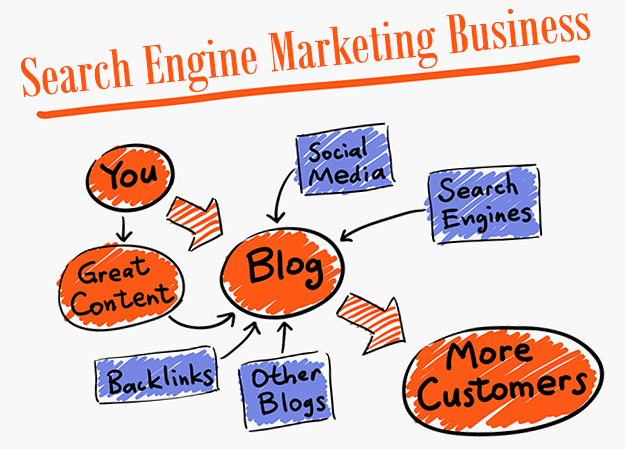Things have changed significantly for American workers in recent years. More and more Americans are working not as employees, but as independent contractors. Some people call it contracting or freelancing, but the implications are always the same – a worker is hired for a particular service and is paid a rate (hourly or per job) for that service.
While working as an independent contractor might be the preferred choice of some workers, it is more often than not an arrangement born out of necessity, facilitated by a growing sea change in the relationship between labor and business.
Contractors might have a bit more freedom in the way they do their jobs but, as many freelancers have discovered, there are plenty of drawbacks to working as an independent contractor. They pay their own taxes, lack many of the benefits associated with full-time employment and – perhaps most concerning – they aren’t protected when it comes to injuries suffered on-the-job.
It’s this lack of compensation for workplace injuries that brings us to a growing discontentment for a large subset of independent contractors – on-demand workers.
What is an On-Demand Worker?
On-demand workers are the people who pick us up when we hail a ride with Uber. They are the workers who come clean our house or fix a leaky pipe when we book someone on our Handy app. In short, on-demand workers are those that spring into action when we request a service from a company that relies on freelance labor.
The “Ride-Share” Economy’s Impact on Workers
Every few weeks or so, you’ll find a news story or press release about another company that wants to become the Uber of something. Handy wanted to become the Uber of household cleaning. Cargo wanted to become the Uber of shipping. The list goes on and on. The financial success and the immense popularity of ride-share services have prompted companies to look for ways to incorporate the ride-share business model into other services, and many of them have been successful in doing so.
These “on-demand” services are not just popular in the business community, they are popular with consumers, too. In many cases, the services offered by the new breed of businesses are more affordable and, in some cases, more responsive to a customer’s needs. It might be tempting for consumers to think of these services as a much more direct way to communicate with someone who is providing the service they need.
The truth, however, is a little more complicated than that. The driver who picks us up, or the handyman who comes to fix our sink, is working on contract through the business who runs the app we use to summon them. The money that we pay that worker is divided between the worker and the business they work for. Many of these businesses have requirements that their workers must meet before they can do their job. Workers don’t have the level of control over their jobs that one would typically associate with an independent contractor, yet they are provided at the same level of benefits. In other words, they are provided with no benefits.
Read also: Making Your Office Safer for Workers
No Security for On-Demand Workers
On-demand workers can suffer injuries just like any other subset of workers. A high percentage of workplace injuries are transportation-related. Many workers suffer injuries while moving goods or traveling for work. When you consider the fact that on-demand workers spend a good deal of their time in transit from one job to another (or, as is the case with drivers for ride-share services, all of their time in transit), it’s no surprise that these workers face just as many, if not more, hazards while on the job as those who are considered to be employees.
To zero in even more on just how dangerous some of these jobs can be, let’s look at taxi drivers and chauffeurs, whose jobs are virtually identical to Uber and Lyft drivers. Taxi drivers and chauffeurs have fatality rates five times those of the average worker. On-demand drivers face the same risks – vehicle accidents, violent attacks – yet they aren’t given the financial security that other workers receive.
If an on-demand worker is injured on the job, the company that they work for will not be held accountable for the injuries of their workers. That worker will be left without the security that so many of us enjoy as a fundamental right. They work just as hard. They observe the requirements set out by the company that employs their services, yet they are guaranteed nothing when something goes wrong.
Contractors “In-Name Only”
Understandably, many on-demand workers are growing increasingly dissatisfied with their classification as independent contractors. This is evidenced in a number of lawsuits in which workers are seeking to be treated with the same rights and benefits as other types of workers. This has been happening in the trucking industry for some time, an industry that has shifted from one heavily reliant on employed drivers (who used to be more likely to be union members) to one of the independent workers, and this industry suffered major labor shortage as a result. In one high-profile lawsuit, an appeals court found that FedEx incorrectly classified their drivers as contractors, despite the fact that FedEx required workers to wear FedEx uniforms, drive FedEx vehicles, and groom themselves according to the standards of FedEx.
While on-demand workers face slightly different requirements from their companies, the principle is very much the same. The question is: How much can a company ask of you before they should give you the same rights as their “employees” are afforded? The answer is that you can ask only so much from a worker before they are essentially a contractor “in-name-only.”
It’s becoming clear that companies are taking all of the advantages they can out of the “contract” relationship they have with workers while providing none of the benefits that they would give their employees. Unfortunately, this means a lack of workers’ compensation benefits for on-demand workers.
The Implications for Consumers
On-demand services might seem like a great thing for consumers, for now, but there are many ways in which the relationship between workers and their companies will begin to seep into the quality of the services consumers are currently enjoying. If companies providing on-demand services fail to provide workers with adequate benefits, they will face the same challenges as the transportation industry, which is struggling to keep high-quality workers who will find more benefits and security in other labor markets.
In other words, on-demand suppliers will eventually get what they pay for and, by extension, so will consumers. In that respect, the lack of protection for on-demand workers is bad for business, not just for the workers themselves, but for consumers as well.






















